The Top Five Industries for Merchant Cash Advances
Lets Get Started
In today’s fast-paced business environment, many small business owners need quick and accessible business financing to support their operations. Traditional financing options like small business loans, term loans, lines of credit, and SBA loans often require high minimum credit scores, have inflexible repayment terms, and can take weeks, or even months, for lenders to process and finish underwriting.
This is where merchant cash advances (MCAs) can provide an invaluable solution for businesses seeking an alternative financing option to fuel their growth, improve their cash flow and take advantage of opportunities. With flexible terms, MCA providers offer working capital based on future sales, making it an attractive option for startups, businesses, even those with bad credit or those facing short-term cash flow challenges.
What are MCAs?
A Merchant Cash Advance (MCA) is a financing option for small businesses that is ideal for those in need of quick access to working capital. Unlike a loan, an MCA is an advance on a business’s future credit card sales or revenues. This type of financing is often used by businesses with seasonal fluctuations or needing to cover short-term cash flow gaps.
When a business obtains a merchant cash advance, the provider gives the business a lump sum of money upfront. In exchange, the business agrees to sell a share of its future revenues at a discount. The MCA provider and small business will set percentage of revenues tied to daily or weekly debits and the advance amount is collected through deductions directly from the business’ bank account. This process continues until the full advance amount and fees are collected.
Unlike loans that utilize interest rates, the cost of an MCA is usually expressed as a factor rate, which is a multiplier applied to the advance amount to determine the total repayment amount. For example, if a business receives a $10,000 advance with a factor rate of 1.2, the total repayment amount would be $12,000.
When are MCAs appropriate?
A merchant cash advance (MCA) can be a suitable financing option for many businesses. Here are a few instances when seeking an MCA might be a wise decision:
Seasonal business fluctuations: Business funding is very helpful to companies that experience significant fluctuations in revenue due to seasonal trends, such as retail stores during the holiday season or an ice cream shop during the summer months, which may benefit from an MCA to cover expenses during slow periods and capitalize on peak revenue opportunities.
Bad credit: traditional lenders look for borrowers with good credit. However, there are plenty of times when a company with a poor business credit score needs financing. Thankfully, merchant cash advance providers are more interested in annual revenue than they are in your credit score. Buying a percentage of future monthly revenue doesn’t require an examination of a credit report, after all.
Unexpected expenses or emergencies: Unforeseen events like equipment breakdowns, natural disasters, or other emergencies can create a sudden need for working capital. An MCA can provide quick access to funds to cover these unexpected costs, helping the business to continue its operations without major disruptions.
Short-term cash flow gaps: Businesses that face temporary cash flow issues, such as those waiting for outstanding invoices to be paid or experiencing a temporary dip in sales, can use an MCA to bridge the gap and maintain their day-to-day operations.
Time-sensitive growth opportunities: When a business encounters an opportunity to expand, purchase inventory at a discount, or invest in marketing efforts with a high return on investment, an MCA can provide the necessary funds quickly, allowing the business to seize the opportunity and potentially boost its revenue. The application process for an MCA can take as little as a single business day, meaning you can fund your business needs within a day.
What are the Top Industries for MCAs?
While certain industries have access to many different loan options, other industries lend themselves better to alternative finance options. Invoice factoring might be wise if you’ve got a ton of receivables. If you require significant equipment, equipment financing might be the right move. While not limited to these categories, merchant cash advances work really well for companies with extensive credit and debit card transactions, poor credit, and in need of fast, even same-day small business financing.
Restaurants
Restaurants can use merchant cash advances (MCAs) in various ways to support their operations and growth.
One common use is to purchase inventory and supplies, including food, beverages, and essential items like napkins, utensils, and cleaning products. This can be especially helpful when stocking up for peak seasons or special events. Additionally, MCAs can provide the necessary funds for equipment purchases or repairs, ensuring the kitchen runs smoothly and efficiently.
Another way restaurants can benefit from MCA companies is by covering payroll expenses during slow periods or hiring additional staff for busier times. This ensures that they have the necessary workforce to meet customer demand. Restaurants can also use MCAs to fund renovations, expansions, or even open new locations, enabling growth and improvements to the dining experience.
Investing in marketing and advertising is another area where MCAs can be helpful, allowing restaurants to attract more customers and boost revenue through print ads, online promotions, or special events like live music or themed nights. Furthermore, MCAs can offer quick access to funds in case of unexpected expenses or emergencies, such as equipment breakdowns or natural disasters, minimizing disruptions to the business.
Transportation
Trucking and transportation companies can effectively utilize merchant cash advances (MCAs) to address financial needs and support operations. One key area where MCAs can benefit is acquiring and maintaining vehicles, such as purchasing new trucks, trailers, or other essential equipment. Additionally, MCAs can help cover the costs of unexpected repairs or maintenance, minimizing downtime and ensuring the fleet remains operational.
Fuel expenses are a significant and ongoing concern for trucking and transportation businesses. An MCA can provide the necessary funds to manage fuel costs, particularly during times of fluctuating prices or when covering long distances. Moreover, MCAs can be used to cover payroll expenses, enabling companies to retain experienced drivers or hire additional staff during peak seasons or periods of increased demand.
Trucking and transportation companies can also invest in technology upgrades, such as GPS tracking devices, fleet management software, or electronic logging systems, by using funds obtained through business cash advances. These investments can lead to improved efficiency, cost savings, and regulatory compliance. Furthermore, MCAs can help companies expand their services, enter new markets, or even acquire other businesses, fostering growth and diversification.
Healthcare
Healthcare companies can leverage merchant cash advances (MCAs) to address various financial needs and support their operations. One primary area where MCAs can benefit is acquiring and maintaining medical equipment, such as purchasing advanced diagnostic machines, hospital beds, or essential instruments. Additionally, the fast funding benefit or MCAs can help cover the costs of unexpected repairs or maintenance, ensuring that the healthcare facility continues to provide high-quality care without disruptions.
Medical staff salaries and payroll expenses are significant and recurring costs for healthcare companies. An MCA can provide the necessary funds to manage payroll expenses, enabling companies to retain experienced medical professionals or hire additional staff during periods of increased patient demand. This ensures that the facility can maintain adequate staffing levels and provide quality care to patients.
Healthcare companies can also invest in technology upgrades, such as electronic health records systems, telemedicine platforms, or advanced patient monitoring devices, by using funds obtained through MCAs. These investments can lead to improved efficiency, better patient care, and enhanced regulatory compliance. Furthermore, MCAs can help companies expand their services, open new locations, or even acquire other healthcare businesses, fostering growth and diversification.
Retail
Retail companies can benefit from merchant cash advances (MCAs) to address various financial needs and support their business operations. One key area where MCAs can be helpful is in managing inventory. Retailers can use the funds to purchase additional stock, especially during seasonal fluctuations or when there is an increase in customer demand for specific products. This ensures that the business maintains adequate inventory levels and avoids losing sales due to stockouts.
In addition, retail businesses can use MCAs to invest in store improvements or renovations. This could include updating fixtures and displays, enhancing lighting, or expanding retail space to accommodate more merchandise. Such upgrades can help create a more appealing shopping environment for customers, ultimately leading to increased sales and revenue.
Marketing and advertising are essential for retail businesses to attract customers and maintain a competitive edge in the market. Retailers can use the funds obtained from an MCA to launch promotional campaigns, create eye-catching in-store displays, or invest in digital marketing efforts such as social media advertising and search engine optimization. These activities can help drive foot traffic to the store and boost sales.
Retail companies can also use MCAs to cover payroll expenses, ensuring that they can retain experienced staff members or hire additional employees during busy periods. A well-staffed retail store is essential for providing excellent customer service and maintaining a positive shopping experience.
MCAs For Any Business Need and Any Type of Business
We’ve detailed a few of the industries best suited for MCAs and how they might utilize this type of funding. That said, any business can benefit from fast funding available through a merchant cash advance. Moreover, a business can use funding from and MCA in any way that they deem will help their business, making it a flexible option that owners should consider.
*Repayment in this context describes the process of repurchasing a merchant cash advance. It does not describe the process of repaying a loan. MCAs are legally distinct from loan products.





